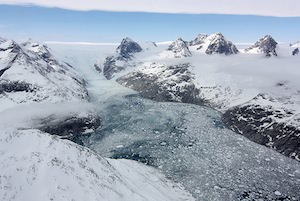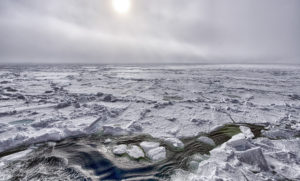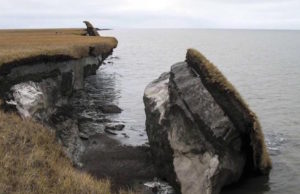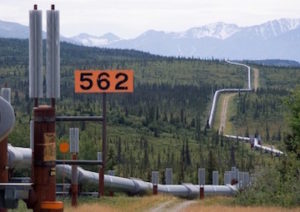A Cooler Century? Wait and See
New research suggesting the Earth may be warming more slowly than expected does not mean climate change is a false alarm, experts say.
By Alex Kirby, Climate News NetworkThis piece first appeared at Climate News Network.
LONDON — Several leading authorities on climate change have given a guarded welcome to research suggesting the Earth may warm more slowly than scientists had expected.
An international research team led by Dr Alexander Otto of the Environmental Change Institute (ECI) at the University of Oxford, UK, has reported its conclusions in the journal Nature Geoscience.
The Earth is now warming faster than at any time in the last 11,000 years, but scientists do not understand clearly why the atmosphere has warmed less than they expected over the last decade or so, and more slowly than in the 1990s.
The researchers looked at how the last decade would affect the long-term sensitivity of the climate to a doubling of atmospheric concentrations of carbon dioxide, and suggest the Earth will warm more slowly than expected this century.
But even though the heating may be slower, giving politicians more time to act, the scientists still believe temperatures will eventually climb to 4°C above pre-industrial levels, well above danger levels.
Clive Hamilton is professor of public ethics at Charles Sturt University, Australia, and author of Requiem for a Species: Why we resist the truth about climate change. Published in 2010, it says climate change will bring about large-scale, harmful consequences for life on Earth which it is too late to prevent.
Professor Hamilton told Climate News Network: “The study should certainly be taken very seriously, although we will need to see over the next year or two how well it stands up to scrutiny. Let’s hope they are right; it’s the first bit of good news we have had a for a long time.”
Too soon to say
Dr Geoff Jenkins is the former head of climate change prediction at the UK Met Office’s Hadley Centre for Climate Prediction and Research. He told the Network: “Until we actually understand why the global temperature rise has paused over the last decade – and we don’t yet – it’s still guesswork what the implications are for climate sensitivity and hence the future projections.
“If the pause is a ‘correction’ to a naturally-boosted rise over previous decades, then maybe the climate sensitivity is indeed lower than the Intergovernmental Panel on Climate Change’s central estimate and future rises will be towards the lower end of the range.
“But if the pause is a temporary natural offset to the man-made rise, then this offset would disappear at some stage and put us back on the central estimate track. I don’t see how we can say which it is until we understand the reason for it.”
Many governments have promised to try to limit atmospheric warming to no more than 2 °C above pre-industrial levels, believing that threshold will prevent dangerous climate change.
Previous estimates showed that would require global greenhouse gas emissions to peak by 2020 and then fall, a prospect that seemed out of reach while emissions continue to rise fast.
Another member of the research team is Professor Myles Allen, also of ECI Oxford. “Prior to this, a lot of us were feeling quite gloomy that whatever we did, we’ll go over 2 °C”, he said. “It’s not a foregone conclusion any more.”
That means the protracted UN climate negotiations could still produce a workable agreement. If a deal enters force in 2020 and leads to rapid emissions cuts, “there remains a good chance we could hit the 2°C target”, Professor Allen says.
Models ‘pretty accurate’
Explanations for the current pause are the masking effects on greenhouse gases of pollution, the seasonal weather-disrupting El Niño phenomenon, and slight variations in the Sun’s output. It also appears that much of the heat has been going, not into the atmosphere, but into the oceans.
What Dr Otto and his colleagues have done is to estimate how much warming, with rising emissions, the world is likely to experience by the time carbon dioxide levels have doubled since pre-industrial times. Their most likely estimate is 1.3°C, not the rise of up to 1.6 °C suggested by previous studies.
“In the short term, there is maybe a bit less warming than expected,” said Dr Otto. But he told the London Guardian that the findings of his team’s research did not constitute evidence that climate change had stopped.
He said: “Given the noise in the climate and temperature system, you would need to see a much longer period of any pause in order to draw the conclusion that global warming was not occurring.” Such a period could be as long as 40 years. The team’s study had found that most of the climate change models used by scientists were “pretty accurate”.
On such a contentious subject some scientists would argue for caution in evaluating the research. A rise of 4°C in global average temperatures could mean far higher regional rises. The oceans are likely one day to give up much of the heat they are now absorbing, which will return to the atmosphere.
So warming could accelerate fast and unpredictably. And on present trends, fossil fuel use is likely to go on increasing for several decades at least.
There are qualifications and conditions in the research, “ifs” and “buts” which suggest there may be unknown unknowns ahead. Its conclusion is that the world is still warming – much too fast for comfort.
Your support matters…Independent journalism is under threat and overshadowed by heavily funded mainstream media.
You can help level the playing field. Become a member.
Your tax-deductible contribution keeps us digging beneath the headlines to give you thought-provoking, investigative reporting and analysis that unearths what's really happening- without compromise.
Give today to support our courageous, independent journalists.








You need to be a supporter to comment.
There are currently no responses to this article.
Be the first to respond.